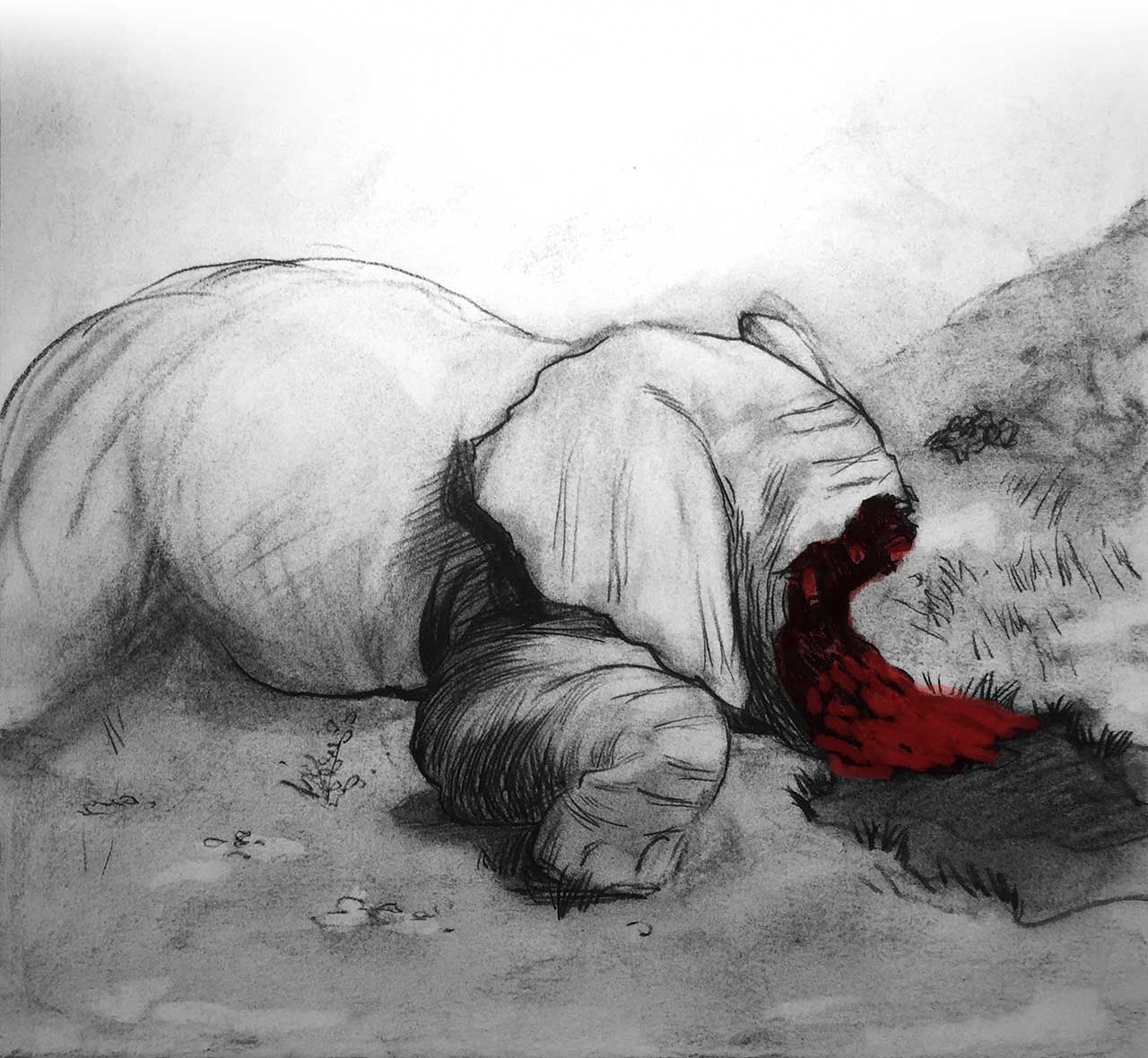
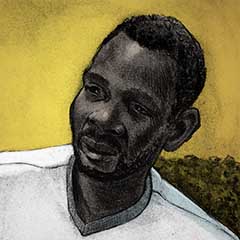
The Poacher
Musa Matimbwa
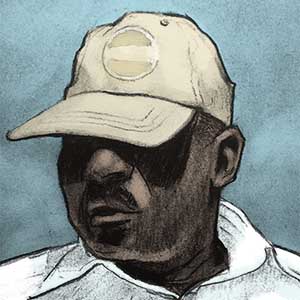
The Smuggler
“Jirani”
Poacher’s regret
Reported and translated by Idd Ligongo and Omary Kaseko • Written and illustrated by Brian Williamson
Poaching has hit Tanzania’s Selous Game Reserve hard. Over a decade, nearly two-thirds of the preserve’s savannah elephants were lost, most for their ivory. An ivory smuggler and an ex-poacher in Tanzania described to VOA how their illegal — and brutal — hunts worked. The poacher, Musa Matimbwa, said poverty drove him to take part. Now active in anti-poaching activities, he regrets what he did. Poaching has hit Tanzania's Selous Game Reserve hard. Over a decade, nearly two-thirds of the preserve's savannah elephants were lost, most for their ivory. An ivory smuggler and an ex-poacher in Tanzania described to VOA how their illegal — and brutal — hunts worked. The poacher, Musa Matimbwa, said poverty drove him to take part. Now active in anti-poaching activities, he regrets what he did.
I was an employee of one of the government agencies dealing with wildlife management.
“Jirani” *
Former ivory smuggler
* Not his real name
I lost that job. My only experience was in wildlife affairs.
Where would I use this experience? The only place I found to use it was poaching.
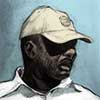
The [poaching] network starts with people who are trusted to protect animals — officials from the natural resources ministry. They know where the elephants are and how they can be killed easily. They tell us when the patrol will be. Without them, this business would be impossible.

Poachers are people who live close to the parks. They are very poor, and have lost their direction in life. Some of them are retired police and army officers.
I was a “fundi” (an expert in killing elephants).
Musa
Former poacher

I led a group of six people in the bush for up to 16 days. Young kids were paid to carry our equipment and products.

One person was an expert on directions in the reserve, and knew where you could find many groups of elephants.

He made sure where we were going to do the killing would be a safe place.
Poachers also rely on local villagers to know where the elephants are in the park.
Weather, time of the year, availability of water...
Poachers also rely on local villagers to know where the elephants are in the park. Weather, time of the year, availability of water— these are critical to knowing where the elephants likely are going.
...these are critical to knowing where the elephants likely are going.
I inherited this job from my father. He had all the equipment in the house used for poaching.

We have many animals here. I used to take the rifle secretly, and poach.

Friends introduced me to people who dealt with poaching. People brought me high caliber rifles.


You need to have the appropriate bullets and rifles ... .375, .458, .30/06, and .416. All these are rifles, and have the power to kill an elephant.

We are responsible for finding bullets, and we use people with licenses to buy bullets for us.

Elephants have weak points. Before you shoot, you need to make sure those points are open.
Elephants have weak points. Before you shoot, you need to make sure those points are open.
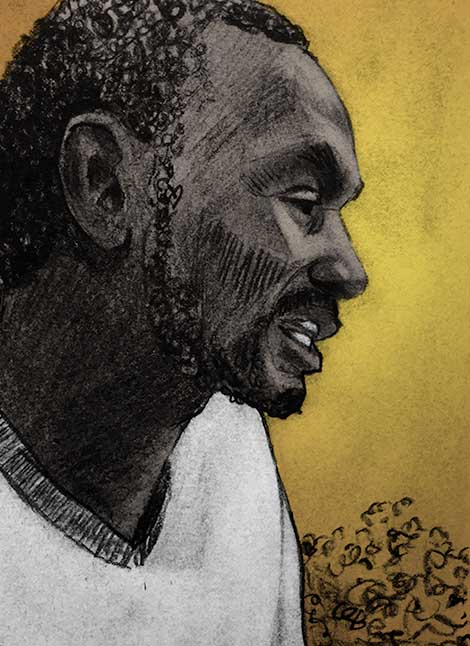

The most important places to shoot an elephant are at the middle of the head or heart.

You need to be very sure where you’ll hit.


If you don’t hit the right place, you may let the elephant run or kill you.
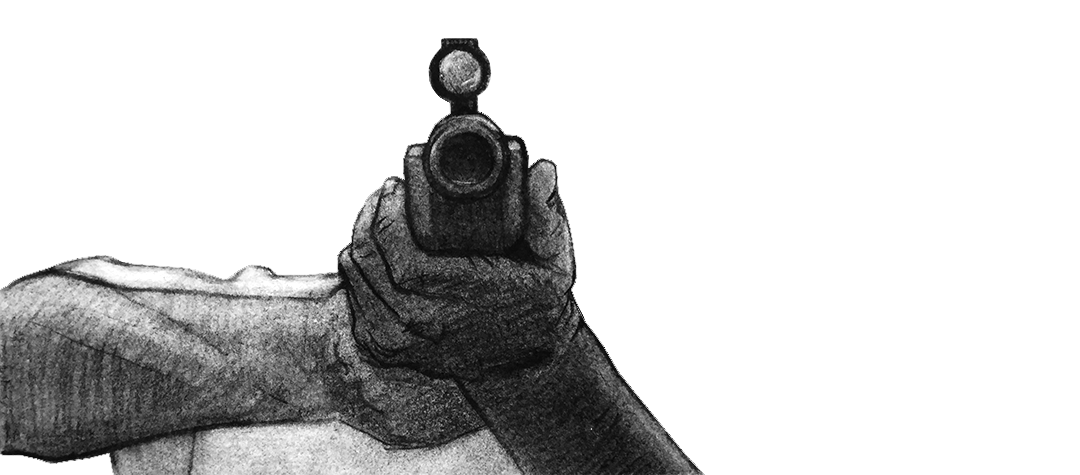

CRACK!

Once you hit the elephant, we wait a few minutes until we're sure it’s dead. It doesn’t take long for the elephant to die once you hit the right spot.

Once you hit the elephant, we wait a few minutes until we're sure it’s dead.
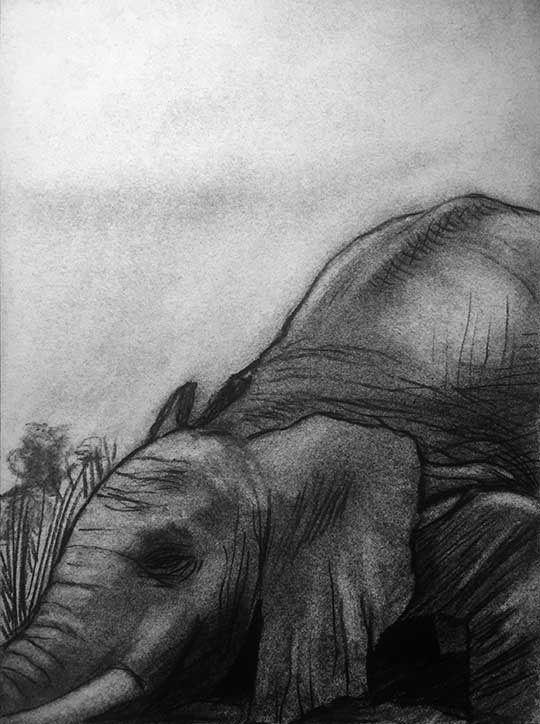
It doesn’t take long for the elephant to die once you hit the right spot.

We use an ax to remove the tusks. You need to chop deep from the base of the tusk.
We use an ax to remove the tusks. You need to chop deep from the base of the tusk.



It doesn’t take so long ... 10 to 20 minutes maximum.

We measure the weight while we are in the bush. During one expedition poachers can kill between three and five elephants. We pay them right away, at the rate of one kilogram of ivory for 100,000 TSH (about $44 U.S.).

We measure the weight while we are in the bush. During one expedition poachers can kill between three and five elephants.

We pay them right away, in a price of one kilogram of ivory for 100,000 TSH (about $44 U.S.).
The prices paid for a tusk grows exponentially as it moves from the poacher in Africa to the marketplace in Asia.
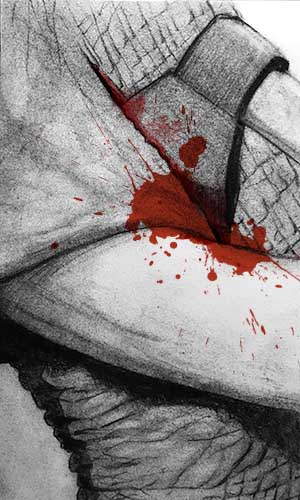
For a 5-10kg tusk:
$26
A poacher’s cut in Cameroon

$40
A middleman’s cut in Cameroon
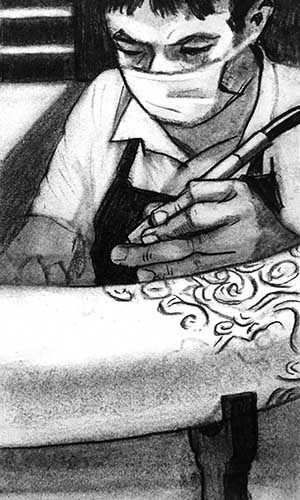
$900
A workshop’s cut in China

The eventual retail price could be thousands of dollars.
* The 2011 wholesale average raw ivory prices paid in U.S. dollars (Stiles, Martin and Vigne (PDF))
Researchers have used DNA analysis to trace the origins of smuggled ivory. Some of the largest seizures of ivory in Asia have come from Tanzania.
Researchers have used DNA analysis to trace the origins of smuggled ivory. Some of the largest seizures of ivory in Asia have come from Tanzania.
Now I know that they were robbing us. We didn’t know the price of ivory during that time.
I was broke, and I wanted the money.
Musa stopped poaching in 2014, deciding he was tired of running from the law.

I have killed many elephants, their bones can be carried by four trucks and more. I was robbing the next generation’s wealth.
